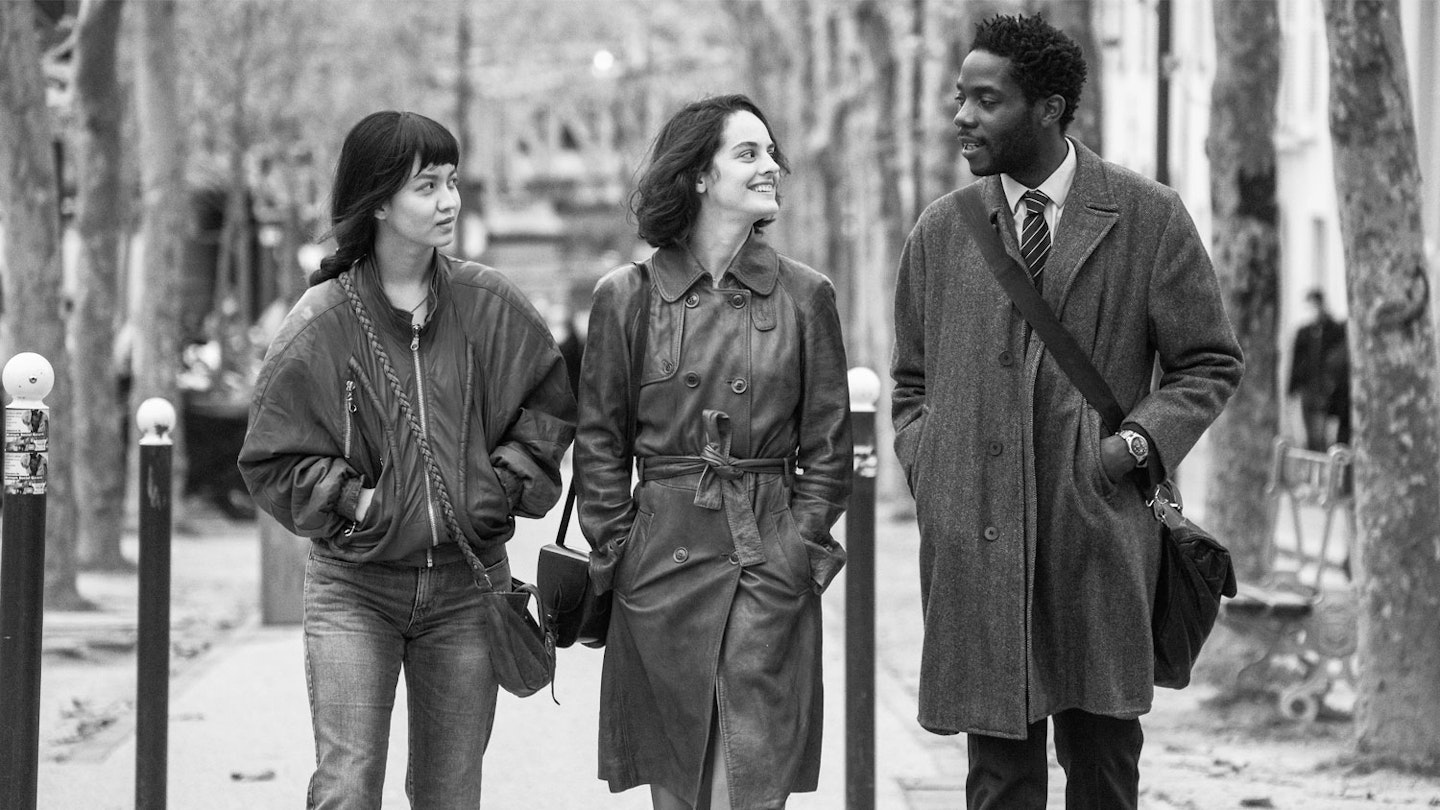During one of many lilting conversations about sex and desire in Paris, 13th District, charismatic, confident teacher Camille (Makita Samba) shallowly states, “If I’m not violently turned on, forget it. Attraction fades, so start with the highest attraction level.” It’s an approach that doesn’t go down well with still-infatuated former lover Émilie (Lucie Zhang), despite her own laid-back attitude to dating (“Fuck first, see later”), and one that director Jacques Audiard seems keen to deconstruct in a film that eschews most of the beginning of its characters’ relationships, focusing more on how they treat each other afterwards.
Let’s flash back, as the film does, to ‘How It Began’ — Émilie and Camille first meet when the latter rents a room from the former, a spiky first encounter turning quickly into casual sex, which turns quickly into unrequited love. Elsewhere in the city, Nora (Noémie Merlant) is returning to university to study law, free from the clutches of a mysterious past relationship but still trapped in a kind of shy social naivety that sees her struggling to make friends and fit in with her younger peers. Their three lives ultimately all collide. Hearts are won, broken and mended again.

Though each character has their own plot-strands to contend with — sometimes distractingly so — Paris, 13th District is largely more concerned with mood than it is narrative. It flits around in time, each vignette picking out pivotal moments in Nora, Camille and Émilie’s relationships. It’s a structure that makes sense, given the film is based on a set of short stories — but it’s not always clear how many days or weeks have passed and therefore how much their connections have developed, which can have a disorientating effect.
Merlant is particularly impressive, perfectly balancing Nora’s boldness and insecurity.
Audiard shoots the nudity and sex in a fairly nonchalant yet tender way, jumping from tactile close-ups of skin on skin to avert-your-eyes nakedness in the kitchen. The classic nature of the monotone visuals contrasts nicely with the extremely present-day sensibility of the script — a depressingly accurate picture of modern dating at times, it’s as incisive as you’d expect from a team of writers including Portrait Of A Lady On Fire’s Céline Sciamma. There are solid performances all round: Samba has mastered Camille’s swagger, and Zhang is just the right amount of irritating and effervescent, with a storyline involving her grandmother played with heart-wrenching relatability. Merlant is particularly impressive, perfectly balancing Nora’s boldness and insecurity to make her the most rounded of the three protagonists.
There’s a lot to like about Paris, 13th District: the naturalistic chemistry, the split-screen and surrealist flourishes, an incredibly surprising yet satisfying punch to someone’s face. Hanging out with these three people for 105 minutes is an attractive, rewarding experience, but the film’s attempts to draw in deeper, darker themes are mostly unexplored. Much like Camille’s initial outlook on finding a partner, it never quite breaks beyond surface level.

